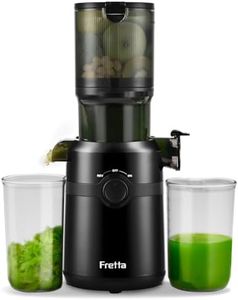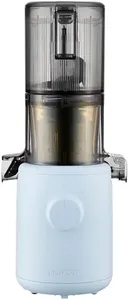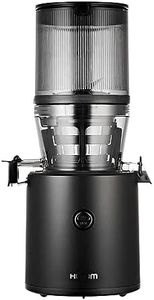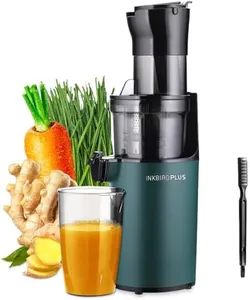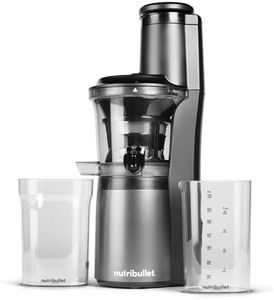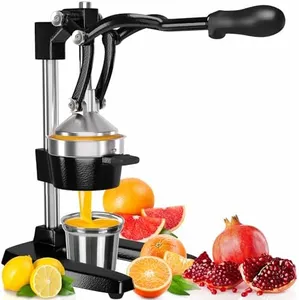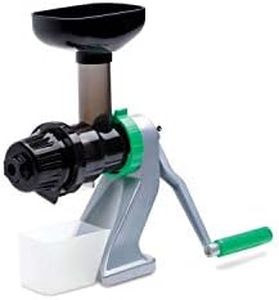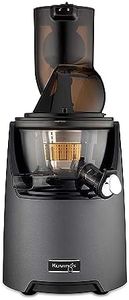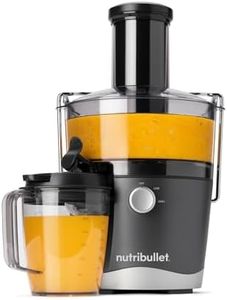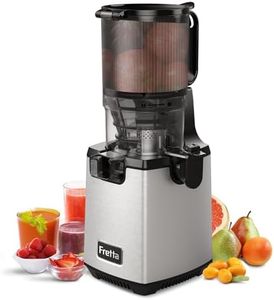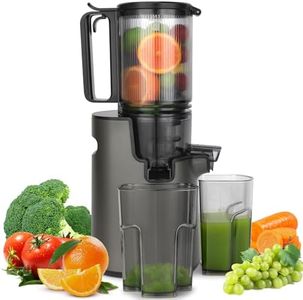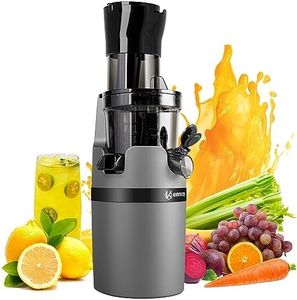We Use CookiesWe use cookies to enhance the security, performance,
functionality and for analytical and promotional activities. By continuing to browse this site you
are agreeing to our privacy policy
10 Best Commercial Juicers
From leading brands and best sellers available on the web.By clicking on a link to a third party's website, log data is shared with that third party.
Buying Guide for the Best Commercial Juicers
Choosing the right commercial juicer is important because businesses depend on consistent results, fast operation, and long-lasting performance. When picking a commercial juicer, it's essential to understand how your intended use, expected workload, and desired juice quality will shape your ideal choice. Carefully consider what kinds of fruits and vegetables you'll process most often, how much volume is needed daily, and what type of juice consistency you prioritize. Each juicer operates differently and fits a particular business size or juice menu, so understanding specifications is the best way to ensure you buy a machine that supports your business smoothly and reliably.Juicer TypeThe juicer type refers to the mechanism the machine uses to extract juice, most commonly centrifugal, masticating (also known as cold-press or slow juicers), or citrus juicers. Centrifugal juicers are fast and great for high-volume needs with hard produce like apples and carrots, but they may yield less juice and create more foam. Masticating juicers are slower but extract more juice with higher nutritional value, especially from leafy greens and soft fruits; they're ideal if you want to emphasize juice quality. Citrus juicers are designed specifically for oranges, lemons, and similar fruits and offer efficiency for citrus-focused menus. Match the juicer type to your primary ingredients and speed versus quality needs to get the right fit.
CapacityCapacity describes how much produce the juicer can handle at one time or over an hour, usually noted in liters per hour or similar measurements. Lower capacity machines are fit for smaller cafes or occasional juice service, while high-capacity models work best for juice bars and restaurants with steady or heavy demand. Estimate your daily or peak hour juice output and choose a machine rated above your needs to avoid overworking it and to accommodate busy periods.
Motor PowerMotor power, usually rated in watts or horsepower, reflects how forcefully the juicer can process fruits and vegetables. Higher power allows faster operation and easier handling of tougher or larger pieces, but also may increase noise or energy use. For businesses processing dense items like beets or ginger regularly, higher power is preferable, while lighter use or mainly soft produce allows you to consider less powerful motors.
Ease of CleaningEase of cleaning looks at how simple it is to disassemble, wash, and reassemble the juicer. Machines with fewer parts, dishwasher-safe components, or included cleaning tools save significant labor time and support hygiene, which is critical for commercial settings. If your juicer will be used all day, choose a model known for fast and thorough cleaning features to streamline your workflow and meet sanitation standards.
Material & Build QualityMaterial and build quality refers to what the juicer is made from (such as stainless steel or heavy-duty plastics) and how robust the construction feels. Commercial settings demand a durable machine that resists corrosion from acidic juices and frequent cleaning. Stainless steel is often the best choice, offering durability and a professional appearance. If the machine will get intensive use, prioritize sturdiness over lighter, more portable designs.
Noise LevelNoise level reflects how loud the machine is during operation, which can matter for open customer areas or quieter environments. Centrifugal juicers tend to be louder, while masticating types usually run more quietly. Think about your setting—if noise could disturb guests or staff, seek out quieter models or those with noise-reducing features.
Feed Chute SizeFeed chute size indicates how large the opening is for inserting produce. A larger chute allows for putting in whole fruits or vegetables, saving preparation time, while smaller chutes may require more chopping. For high-traffic businesses, a wide chute speeds up the juicing process and reduces labor, while less busy setups might be fine with a smaller one.
Safety FeaturesSafety features include auto shut-off mechanisms, non-slip feet, locking arms, or overload protection. These help prevent accidents or equipment damage, especially in a busy commercial kitchen. If multiple team members use the juicer or you have strict safety protocols, prioritize machines with comprehensive safety elements.

